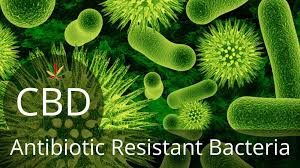
Breaking News
 Special Christmas Eve War Room! FBI Finds Millions More Epstein Docs, PLUS…Updates on Trump's...
Special Christmas Eve War Room! FBI Finds Millions More Epstein Docs, PLUS…Updates on Trump's...
 The U.S. Government Is Not the Daddy of U.S. Oil Companies
The U.S. Government Is Not the Daddy of U.S. Oil Companies
 Aussie Leaders Crush Online Free Speech To Prop Up Failing Multiculturalism
Aussie Leaders Crush Online Free Speech To Prop Up Failing Multiculturalism
 Cocaine Dogs & 'Safe Space Ambassadors': Rand Paul Airs The Festivus (Budget) Grievances
Cocaine Dogs & 'Safe Space Ambassadors': Rand Paul Airs The Festivus (Budget) Grievances
Top Tech News
 Travel gadget promises to dry and iron your clothes – totally hands-free
Travel gadget promises to dry and iron your clothes – totally hands-free
 Perfect Aircrete, Kitchen Ingredients.
Perfect Aircrete, Kitchen Ingredients.
 Futuristic pixel-raising display lets you feel what's onscreen
Futuristic pixel-raising display lets you feel what's onscreen
 Cutting-Edge Facility Generates Pure Water and Hydrogen Fuel from Seawater for Mere Pennies
Cutting-Edge Facility Generates Pure Water and Hydrogen Fuel from Seawater for Mere Pennies
 This tiny dev board is packed with features for ambitious makers
This tiny dev board is packed with features for ambitious makers
 Scientists Discover Gel to Regrow Tooth Enamel
Scientists Discover Gel to Regrow Tooth Enamel
 Vitamin C and Dandelion Root Killing Cancer Cells -- as Former CDC Director Calls for COVID-19...
Vitamin C and Dandelion Root Killing Cancer Cells -- as Former CDC Director Calls for COVID-19...
 Galactic Brain: US firm plans space-based data centers, power grid to challenge China
Galactic Brain: US firm plans space-based data centers, power grid to challenge China
 A microbial cleanup for glyphosate just earned a patent. Here's why that matters
A microbial cleanup for glyphosate just earned a patent. Here's why that matters
 Japan Breaks Internet Speed Record with 5 Million Times Faster Data Transfer
Japan Breaks Internet Speed Record with 5 Million Times Faster Data Transfer
Is CBD the Answer to the Rise in Antibiotic-Resistant Bacteria Like MRSA?

As public health organizations issue dire warnings about the rising threat of antibiotic-resistant superbugs, a surprising hero may rush in just in time to save the day. A new study has found that cannabidiol (commonly known as CBD) is remarkably effective at killing a wide range of Gram-positive bacteria.
Antibiotics have saved millions of lives since their widespread use began many decades ago. Infections that were once a death sentence were easily treated with the medications.
Unfortunately, many antibiotics are now becoming ineffective because bacteria have become resistant to the drugs – they have mutated into "superbugs" that are becoming nearly impossible to treat.
Thankfully, CBD may offer a solution.
Before we talk about the antibiotic properties of CBD, here's a brief overview of the substance and how it works.
What is CBD and how does it work?
Cannabidiol, or CBD, is a non-intoxicating natural medicine that is derived from the Cannabis sativa plant.
CBD is a fascinating compound that has tremendous therapeutic value. It is one of over 100 compounds found in Cannabis sativa plants that belong to a class of ingredients called cannabinoids.
Cannabinoids are a diverse set of chemical compounds that bind to special receptors in the human body that make up what is known as the endocannabinoid system.
The endocannabinoid system is a biological system which plays many important roles in the human body. It is responsible for the physical and psychological effects of cannabis.
Cannabis sativa plants contain much more than cannabidiol: they are rich in phytotherapeutic agents, including Tetrahydrocannabinol (THC), terpenes, and phenolic compounds.
While people (and their animal companions) are finding CBD provides them with relief for a wide range of ailments including arthritis, chronic pain, gastrointestinal problems, and sleep troubles, one area in which CBD may become a true lifesaver is as a treatment for drug-resistant infections.



